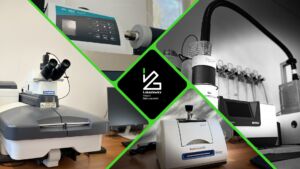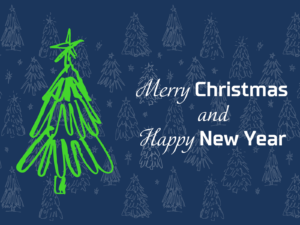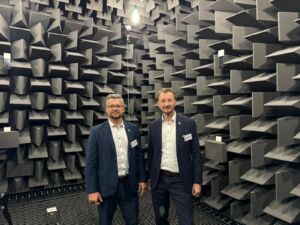A project dedicated to the circular economy of offshore wind turbine blades is underway at Łukasiewicz – IEL. The project is dedicated to composite waste which, to date, has not been recycled on a large scale. The size of the waste are blades ranging from 30 to 130 m in length. Disposal is at best made through the utilisation in cementitious mixtures – ground blade provides the fill and reinforcement, but also loses its value – cement/concrete products are always cheaper than the original cost of the blade.
Łukasiewicz – IEL is working on the development of the circular economy, i.e. the development of a mechanical recyclate (method without selection, without chemicals, without changing the properties of the composite) and its use as a raw material for the manufacture of products for wind power, such as paint and service or finishing compounds, profiles for revisions, canopies, platforms, tower and nacelle barriers, vertical turbine profiles for individual customers (e.g. houseboats, transport vessels, etc.).
Secondary composites that do not meet the requirements of offshore the wind power will be redirected to related industries, e.g. boat building, onshore wind power, construction, since the recyclates and composites made from them, depending on their viscosity (and recyclate content), can be used, as:
-paints, varnishes
– compounds, putties, adhesives
– poured floors
– cast and diecast profiles for platforms, planks, formwork, containers, benches, etc.
Łukasiewicz – IEL, recognising the problem of storing blades in the soil or burning them with toxin emissions – widely used methods of treating waste (examples are the so-called blade graveyards) as extremely reprehensible and harmful to the environment, is making efforts not only to develop a recycling method with low environmental impact, but also to publicise the problem as well as its own project. In this context, Łukasiewicz – IEL is a member of the Polish Circular Hotspot, a partnership organised by the INNOWO Institute, where we met Ms Joanna Wis-Bielewicz from Orsted, as well as having broader discussions with international research bodies, IEL was invited to co-found the Testing Centre for Environmental Friendly Energy organised by NORCE Norwegian Testing Centre in cooperation with NTU Nottingham Trent University. We also promote our activities extensively within Łukasiewicz itself (Challenges, Platforms), in Poland (trade fairs, conferences, publications) and internationally (conferences).
The rMEW grant is the second of the recycling projects for wind energy. The first was dedicated to preliminary tests on land-based blades (subsidy 2022), and the results confirmed the theses posed on the basis of our own experience in composite technology and proved the validity of carrying out work in this field.
The method of recycling and managing the waste raw material is the overarching aim of the RD work at MEW for Łukasiewicz – IEL. However, this is not a one-way street. As we gain experience, we see how many niches accompany this trend. We are also keen to develop young people and provided them with expertise at the early stages of their careers. Therefore, by involving Łukasiewicz – IEL employees in research activities, we are developing research methods, quality control methods for assessing the applicability of such raw materials and secondary composites – microscopy methods as part of an NCN project and ageing studies as part of a master’s thesis planned from the autumn.
And here are the test materials we have received thanks to Orsted’s involvement, from which we will produce a recycled meal that will provide a valuable secondary raw material for service products and equipment for future offshore wind farm units.




